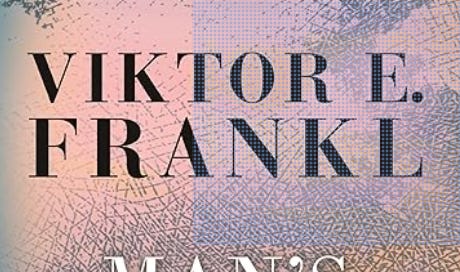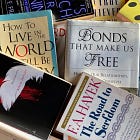What Comes Next at Mindset Shifts U?
Man’s Search for Meaning is one of the most influential books ever written.
Thanks to each of you for working through Meditations with the group and adding rich insights.
Last week, to conclude (for now) our work with Meditations, I posted Know that in Time Those Things Toward Which We Move Come to Be and Marcus's Forgiveness Path.
In 1991, the Library of Congress surveyed readers, asking them to name a “book that made a difference in your life.” Viktor Frankl’s Man’s Search for Meaning finished in the top ten most influential books.
A new paid subscriber shared this: “I've read and appreciated many of your articles at the AIER, but when I read the one about Man's Search for Meaning, I immediately ordered the book and subscribed to your Substack."
The essay Greg is referring to is this one:
During the early days of World War II, Frankl, a prominent Viennese psychiatrist, had some protection from the Nazis. In 1942, Frankl received a rare U.S. immigration visa but stayed behind for his parents' sake. In September of that same year, the Nazis deported Frankl and his family to a concentration camp.
Frankl spent three years in concentration camps. He lost his wife, parents, and brother to the totalitarian killers.
Even before his experience in the death camps, Frankl had begun to formulate his theory that an individual’s search for meaning in life is a driving force behind well-being and indirectly to happiness.
Man’s Search for Meaning is divided into three parts, not chapters. We will begin on April 27th (one week later than previously announced so that you can read ahead) with the posting of my first overview. We will spend four weeks on the book.
Experiences in a Concentration Camp, April 27th through May 10th
Logotherapy in a Nutshell, May 11th through 17th
The Case for Tragic Optimism, May 18th through 24th
After Man’s Search for Meaning, we will take a break before we begin again on June 21st with C. Terry Warner’s Bonds that Make us Free.
In Meditations, Marcus Aurelius never used the term self-deception. Yet, throughout his entries, he observes how we trick ourselves into believing the false is true. Awareness, we saw, is the cleanser.
Philosopher C. Terry Warner is the world’s leading expert on self-deception and founder of the Arbinger Institute. Many people have been introduced to his work through books published by the Arbinger Institute, including Leadership and Self-Deception and The Outward Mindset.
I have taught Warner’s and Arbinger’s material in MBA leadership classes and workshops and have seen firsthand its ability to open minds to radically fresh perspectives on human relationships.
I have chosen Professor Warner’s inspired book, Bonds that Make Us Free for our work at Mindset Shifts U as the sweet spot between his more academic papers and books more limited in scope.
Warner’s work offers a theoretical and practical approach to improving our personal and professional relationships. It will challenge and change you.
Marcus reminded us that we are not guaranteed a tomorrow. Why wouldn’t we want to be the best version of ourselves today?






Would anyone like to guess what the top two books on the survey's list of "most influential" books were? Anyone? Hmmm? Hello? Bueller?
Fine, they were 1) the bible and in a distant second place 2) Ayn Rand's "Atlas Shrugged".
Interesting, no?